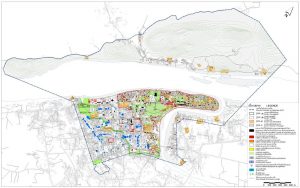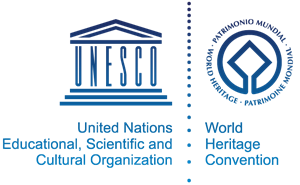Safeguarding and Preservation Plan
PSMV
In December 1995, Luang Prabang, the ancient Lao royal capital, was inscribed on the UNESCO’s World Heritage List. Luang Prabang main feature resides in its exceptional harmony: natural and urban environment intertwining, outstanding wetlands, unique architectural heritage.
From the first years of decentralized cooperation, stress has been set on the need for bringing together preservation, valorization and development policies. The need for a space management tool that would bridge the thought-so antimony between protection and development thus appeared.
The Safeguarding and Preservation Plan (PSMV) was elaborated to solve this issue.
The PSVM is both a legal and an operational tool. Its adds to the existing legislation a finer knowledge of the site, and thus facilitate its management. This inventory is not limited to a snapshot of the city, but extends to social and cultural rules and incentives. It also identifies cultural and natural heritage beyond architectural heritage.
PROJECT OWNER :
Government of the Lao PDR, Luangprabang.
OPERATOR :
Luang Prabang world heritage Office
DATE :
1996 – 2002
TOTAL BUDGET :
554.565 euros
DONORS:
French Development Agency (AFD)

Master plan (PSMV map)
The final safeguarding and preservation plan for Luang Prabang is comprised of four volumes:
- Regulatory documents binding on third parties include:
- The regulation, which drawn up following the same presentation as the urban regulations in effect in Laos (French model: three sections and 15 articles). This regulation provide legal notice and formalize control before and after the work. They are accompanied by a regulatory graphic that presents a simplified and rapid reading of the regulations;
- The inventory of historic buildings, in which over 600 civil and monastic buildings were listed.
- In the category of non-regulatory accompanying documents and recommendations:
- The presentation report, that justifies the adopted objectives and policies and draws up an inventory;
- The « recommendations », in 8 parts dealing with architecture, constructions materials, the range of authorized colors, roads, enclosures, plants, remediation, and monasteries
